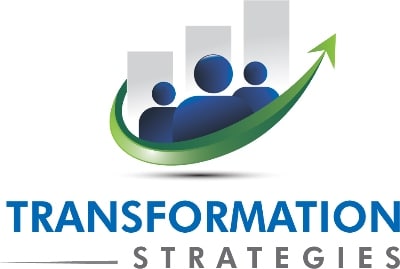How To Create an Attrition Proof Culture


Drive performance. Foster growth. Meet performance expectations. The days of a command-and-control managerial style is long gone and new ways of working have been ushered in. Hybrid work is becoming normalized and as the younger generation enters the workforce, they are demanding new types of leadership and workplaces that pay attention to mental health and well-being.
It can be quite daunting as a business leader working to address all these demands. A critical way to make all this happen is by developing an attrition proof, “coaching” culture.
Why should your company implement a coaching culture?
- It’s About Competitive Advantage: Business is about meeting bottom line revenue. You are dependent upon the people in your business to help you and a coaching culture where ongoing growth and development is the way you do business so that you are constantly grooming your workforce to allow you to be competitive.
- It’s About Team Member and Professional Growth: Having leaders at all levels who know how to have regular coaching conversations that engage their team members to solve problems, innovate and make better decisions catapults your organization for faster talent growth and higher performance.
- It’s About Trust and Employee Engagement: You cannot afford to have key talent leave your organization. If you aren’t doing what it takes to keep your teams engaged in the work they are doing, engaged with the mission of your business, and engaged in building trust with you and their teammates, they will leave. Coaching cultures create the environment where trust is built because it communicates a caring and “you belong here” message.
How do You Create a Coaching Culture?
- Clearly defined “coaching objectives”: Get really clear on why coaching is important to achieve your business results, what it looks like at all levels in the organization, who engages in coaching and the roles they play and the how, where and when it is conducted. A coaching culture develops through a well-planned and thought-out system. It is not just a “fly by night or fad of the day” process.
- Emphasized Role and Accountability of Leadership: Building a successful coaching culture requires it to be led by its leaders who encourage constructive feedback and accountability so that continuous learning and improvement are valued and embraced.
- A Self-Aware Workforce: The skillful use of powerful questions that stimulate reflection and insight is at the core. Coaching leaders leverage their own growth areas and acts as a role model for self-discovery, challenging assumptions, and expanding perspectives. Foster a culture of curiosity and reflection, explore new possibilities, overcome obstacles, and drive their own development journey.
- A Coaching Mindset: It begins with a fundamental shift in humility and mindset. Leaders must embrace the belief that every individual possesses inherent potential, is capable of growth and that their primary role as leaders is to enable their team members to be their best at to create the workplace that allows them to bring all of who they are to work.
- Attitudes of Trust and Rapport: Because trust forms the cornerstone of any successful coaching relationship, building trust and rapport is prioritized through authentic connections, active listening, genuine presence, and empathy, being fully present in the moment and the freedom to seek guidance without fear of judgment.
- Embedded Coaching into Everyday Interactions: Integration of coaching principles into everyday interactions and organizational processes. whether it’s a one-on-one conversation, team meeting, or performance review. Seize every opportunity to coach, inspire, and empower team members. By embedding coaching into the fabric of the organization, leaders create a culture where coaching becomes not just a practice, but a way of life.
In conclusion, cultivating a coaching culture offers a transformative roadmap for organizations to catapult their competitive advantage. By embracing empathy, authenticity, and a genuine commitment to development, leaders can create an environment where individuals thrive, teams excel, and organizational success becomes synonymous with personal growth and fulfillment.
Next Steps
- Visit my website at Transformation Strategies to watch video testimonials from some of our coaching clients.
- Subscribe to my newsletter for great ideas to further develop your leadership effectiveness.
- Follow me on LinkedIn
- If you like to work with a coach to help you develop your self-awareness and emotional intelligence, book a call with me to chat!
- Want to share with VISTA readers how your business is developing its emotional intelligence? We’d love to highlight you! Contact me at tsteege@transformstrat.com.
Connect With Your Community
Subscribe for stories that matter!
"*" indicates required fields






























